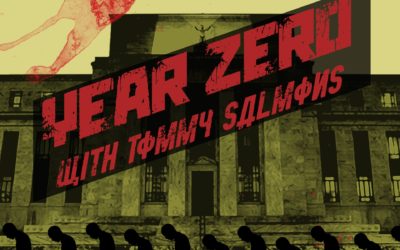On visits to college campuses, I find overwhelming evidence of leftism but virtually no evidence of libertarianism.
Libertarianism is akin to a lost civilization on campuses, worthy of study by students of archeology and anthropology. Perhaps if one were to dig deep enough in an ideological dig, some shards of libertarian thinking could be found on campuses and placed in a museum of quaint ideas.
Students of yesteryear used to have a political epiphany from reading Atlas Shrugged. Now the book is hard to find in college bookstores. And there is almost a zero chance of finding Ayn Rand’s other books, including The Fountainhead, or We the Living, or Capitalism, the Unknown Ideal. The same with trying to find The God of the Machine, by Isabel Paterson; or The Libertarian Reader, by David Boaz; or The Law, by Frederic Bastiat.
On the other hand, there is an abundance on campuses of leftist books, pamphlets, posters, symposia, courses, speech codes, trigger warnings, and safe zones. And during the recent presidential race, it was easy to find supporters of Bernie Sanders and Hillary Clinton but not supporters of Gary Johnson.
Faculty and administrators who control what goes into students’ heads say that the writings of Rand and others do not meet scholarly standards of great literature and philosophy. At the same time they actively import intellectual tripe to their campuses, such as the racist screeds of Cornell West.
College students should be predisposed towards libertarianism, given that they are of the age where they begin to question authority and have a natural interest in civil liberties. So why do we libertarians seem to be losing this ready market?
One guess is that today’s students arrive at college already steeped in statism, due to public K-12 schools having become a centrally-controlled monolith, in which faceless federal and state bureaucrats, teacher unions, and textbook publishers control what is taught.
Another guess is that the influx of foreign students to American colleges includes a lot of students who have grown up in authoritarian and/or socialist countries and thus have no knowledge of libertarian thinking.
Still another guess is that libertarianism is seen as a white thing by people of color—as something that doesn’t address their needs, concerns and grievances. Of course, as libertarians know, libertarianism is the best way of leveling the playing field for all races and instituting a color-blind meritocracy.
The last guess is that students believe that the likes of Google News, “The Daily Show,” and Jon Stewart are nonpartisan and hip, when in actuality these and other popular sources of news and entertainment have a leftward tilt. Conversely, students associate libertarianism with Fox News, because they have been led to believe that libertarians are part of the right wing. As with most Americans, they can’t see beyond the standard left-right bipolar scale to realize that libertarianism is on a different scale, because it is neither left nor right.
So what can be done to capture more market share of thinking on college campuses?
First, we should contribute money to organizations such as the Libertarian Institute in spreading libertarian ideas.
Second, maybe we should concentrate our efforts on college students instead of older Americans, who tend to be lost causes.
Third, we should more effectively use new media to present ideas quickly and crisply to an audience with a short attention span and an impatience with ponderous intellectualism.
Fourth, we should rebrand and repackage our ideas to appeal to students’ obsession with social justice.
On the last point, we could go back to the early nineteenth century and learn from a book of that era, The Law. The front cover of my copy of the book has this tag line: “The Classic Blueprint for a Just Society.” Not only is this great positioning, but the book is only 79 pages and easy to understand.
Come to think of it, the book could be used to soften the beachhead. Students could be bombarded with free copies of the book to make them more open to questioning statism and thus more open to libertarian thinking.
Now that’s something I’d be happy to help fund. How about you?





